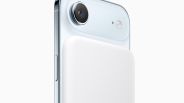Merely several days after reports that iRobot's chief executive wanted to potentially share the data collected from its Roomba vacuum cleaners, which are mostly mapped-out layouts of homes they roam around in, company CEO Colin Angle has now backpedaled on those claims.
Now, Angle says "iRobot will never sell your data," and a company representative now also says reports misinterpreted his previous statement.
'It's All Just A Big Misunderstanding': iRobot CEO
The charade started with Angle's interview with Reuters, in which the CEO gave a clear impression that iRobot sold the home mapping data of their customers. He seemed to imply that newer Roomba models could be used to enhance smart home devices and that it could strike a deal with Apple, Google, or Amazon in the coming year or so to sell the data.
ZDNet's David Gewirtz then wrote a lengthy open letter detailing the privacy concerns that go along with selling user data. iRobot finally responded to that, saying its mission "is to help you keep a cleaner home and, in time, to help the smart home and the devices in it work better."
Will iRobot Still Share User Data?
Angle still says the data Roomba devices collect may help enhance smart homes, which is what he originally thought iRobot would sell the data for, but this time, he phrased in a more careful way: saying that should customers want such a feature, it's entirely upon their choice to share data with other apps and devices.
In fact, iRobot says Reuters misinterpreted Angle, and the publication has now promptly issued a correction. The paragraph that caused panic has now replaced the words "sell maps" with "share maps for free with customer consent." For its part, Reuters admits to the misinterpretation, but simply put, iRobot still says it plans to share that data, just not for cash, apparently.
Asked if iRobot shares data with Amazon Echo if the devices are connected, the company says it doesn't share mapping data with any third parties. In any respect, sharing data with other devices should require certain permissions from users, lest iRobot wants even more privacy concerns.
The company chose not to disclose what kind of data points its Roomba vacuum cleaners collect, but it did say the map users see on their phones isn't the same map the company sees. The collected data, once sent to the cloud, undergoes a process that renders it into a user-friendly map that ultimately appears in the companion app.
Smart home devices present privacy concerns purely for the fact that users can connect it to the internet. Earlier this year, a sex toy company had to settle a million-dollar lawsuit over tracking usage of its smart vibrators.
How this situation pans out remains a question, but it's at least reassuring to know that smart home companies can't just collect then sell data willy-nilly. They'll meet the stern, keen eye of proponents of privacy almost instantly.
ⓒ 2025 TECHTIMES.com All rights reserved. Do not reproduce without permission.




